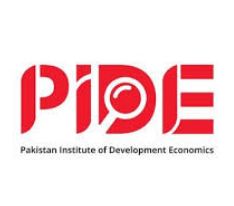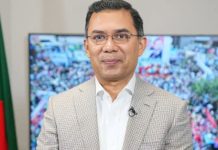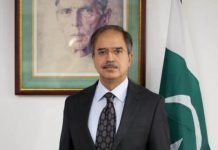ISLAMABAD, JUL 31 (DNA) — A heartfelt memorial service was held today at the Islamabad Club to honor the life and legacy of Prof. Dr. Syed Nawab Haider Naqvi, a distinguished economist, prolific author, and revered academician. The event, organized by the Pakistan Institute of Development Economics (PIDE), brought together family, friends, colleagues, and former students to pay tribute to his immense contributions to the field of economics and his dedication to education.
Prof. Dr. Syed Nawab Haider Naqvi (July 11, 1935 – July 7, 2024) was a renowned Pakistani economist and scholar, known for his extensive contributions to economic theory and policy. Born in Meerut, British India, he migrated to Karachi, Pakistan in 1950. Dr. Naqvi earned his master’s degree from Yale University in 1961 and his doctorate from Princeton University in 1966, followed by post-doctoral research at Harvard University.
Dr. Naqvi served as the director of PIDE from 1979 to 1995. His career also included roles as a senior economic advisor for the National Electric Power Regulatory Authority (NEPRA) and as a Distinguished National Professor and Director General at the Federal Urdu University, Islamabad. He held various prestigious positions throughout his career, including stints at international organizations such as the United Nations and the World Bank.
His scholarly work has left an indelible mark on economic theory and policy in Pakistan and beyond. During his tenure at PIDE, Prof. Naqvi revitalized the institute’s research activities, elevating its profile both nationally and internationally. He succeeded Mr. M. L. Qureshi in 1979 and led the institute until 1995, making his tenure the longest in PIDE’s history.
Under his leadership, the Pakistan Development Review (PDR) gained a new face and enriched content with contributions from institute staff and reputed scholars globally. Prof. Naqvi also founded the Pakistan Society of Development Economists (PSDE) in 1981 and served as the National Professor of Economics from 1996 to 2004.
Prof. Naqvi’s accolades include the Sitara-E-Imtiaz in Economics (1991), ECO Award (1992), Lifetime Academic Achievement Award (2009), and the title of Distinguished Professor (2005). His work on trade, investment, and economic policy has been widely recognized and respected, earning him accolades and respect from peers around the world.
The memorial service commenced with a recitation from the Holy Quran and Fateha for the departed soul, followed by a series of speeches that highlighted Dr. Naqvi’s remarkable achievements and the profound impact he had on the lives of those who knew him. Dr. Mahmood Khalid, Senior Research Economist at PIDE, opened the event by highlighting key achievements of Dr. Syed Nawab Haider Naqvi.
Eminent speakers included Dr. Ashfaque Hasan Khan, Principal and Dean at NUST School of Social Sciences & Humanities, Prof. Asghar Qadir HI,SI, Fellow Pakistan Academy of Sciences, Distinguished National Professor, Dr. Nadeem Burney, Economic Public Policy Program of the Techno-Economics Division at KISR,Ex- Chief of research PIDE, Dr Athar Maqsood, Professor NUST, Dr Eatzaz Ahmed, Ex-Professor QAU and Dr. Nadeem Ul Haque, Vice Chancellor of PIDE.
All lauded Dr. Naqvi’s visionary approach to economic development and his unwavering commitment to fostering intellectual growth and developing human capital in Pakistan. Dr. Ashfaque Hasan Khan remarked, “Prof. Dr. Syed Nawab Haider Naqvi was a beacon of knowledge and a mentor to many. His work in economic development and policy has shaped the course of our nation’s progress. His legacy will continue to inspire future generations of economists.”
Dr. Nadeem Ul Haque added, “Dr. Naqvi’s contributions to PIDE and his efforts in establishing it as a premier research institution are unparalleled. He was not just an academician but a guiding force for many young economists who looked up to him for wisdom and guidance.” Family members of Dr. Naqvi shared personal anecdotes, reflecting on his humility, generosity, and the values he instilled in them. His daughter, Ayesha Naqvi, spoke of her father’s enduring love for learning and his belief in the transformative power of education. — DNA

















